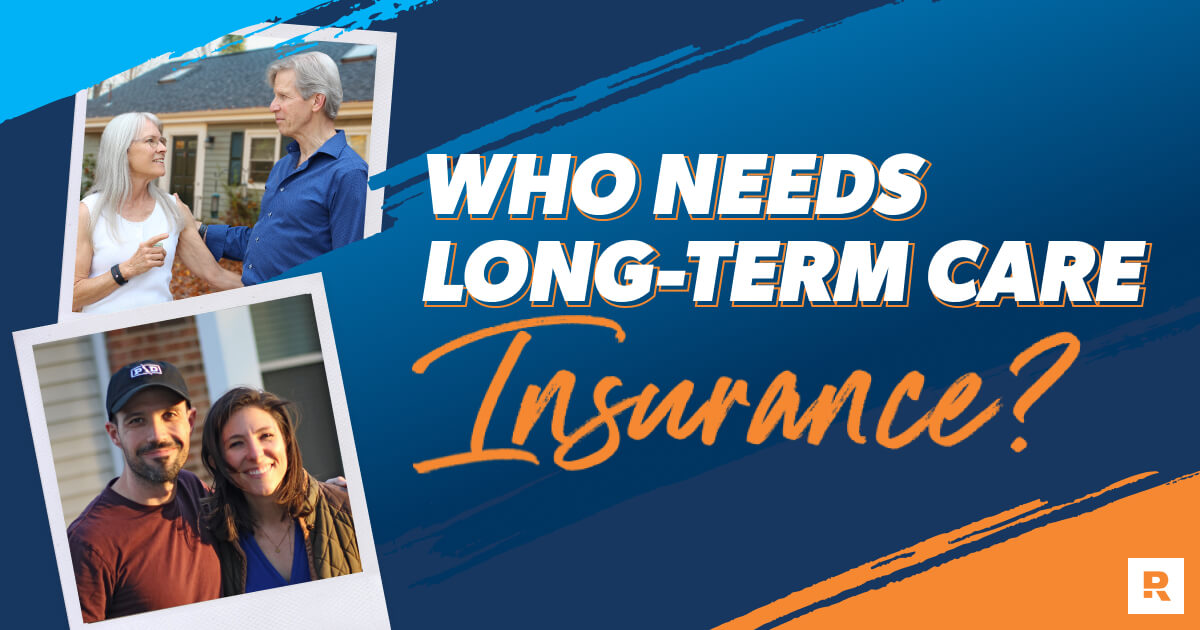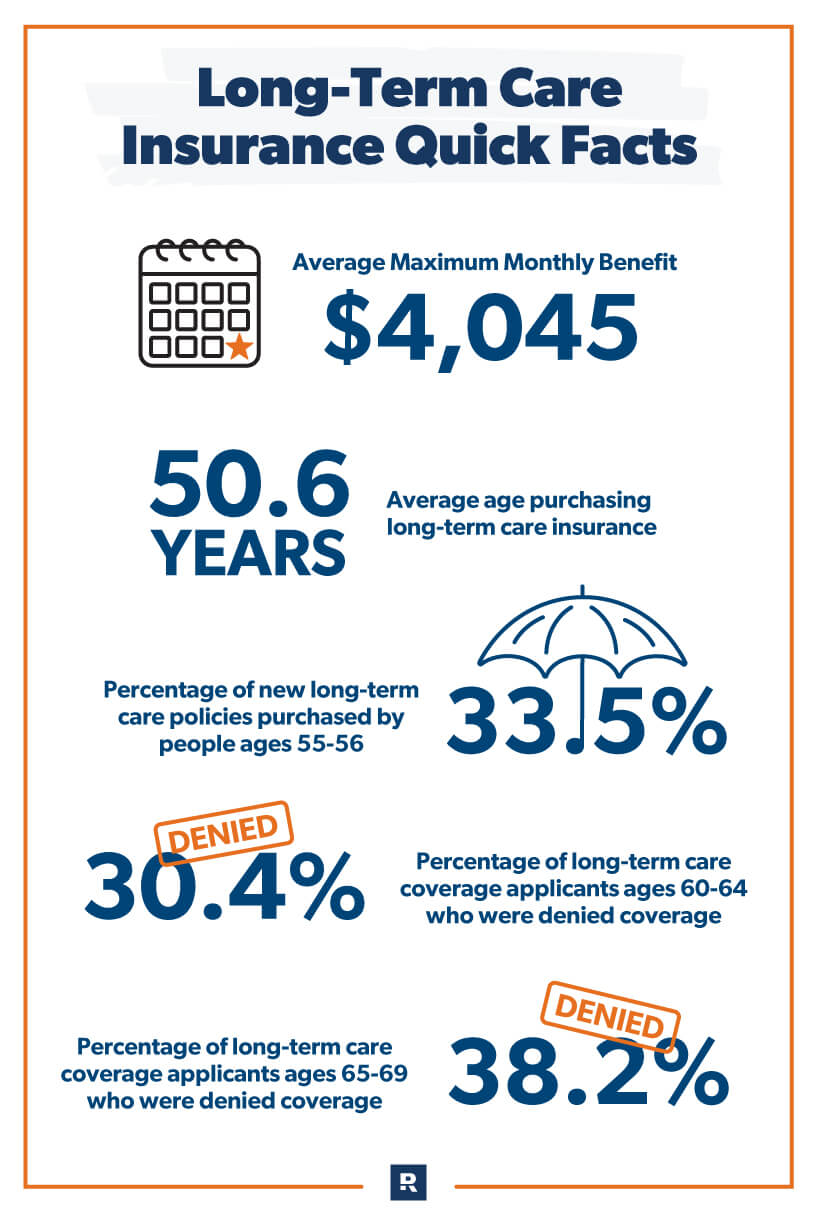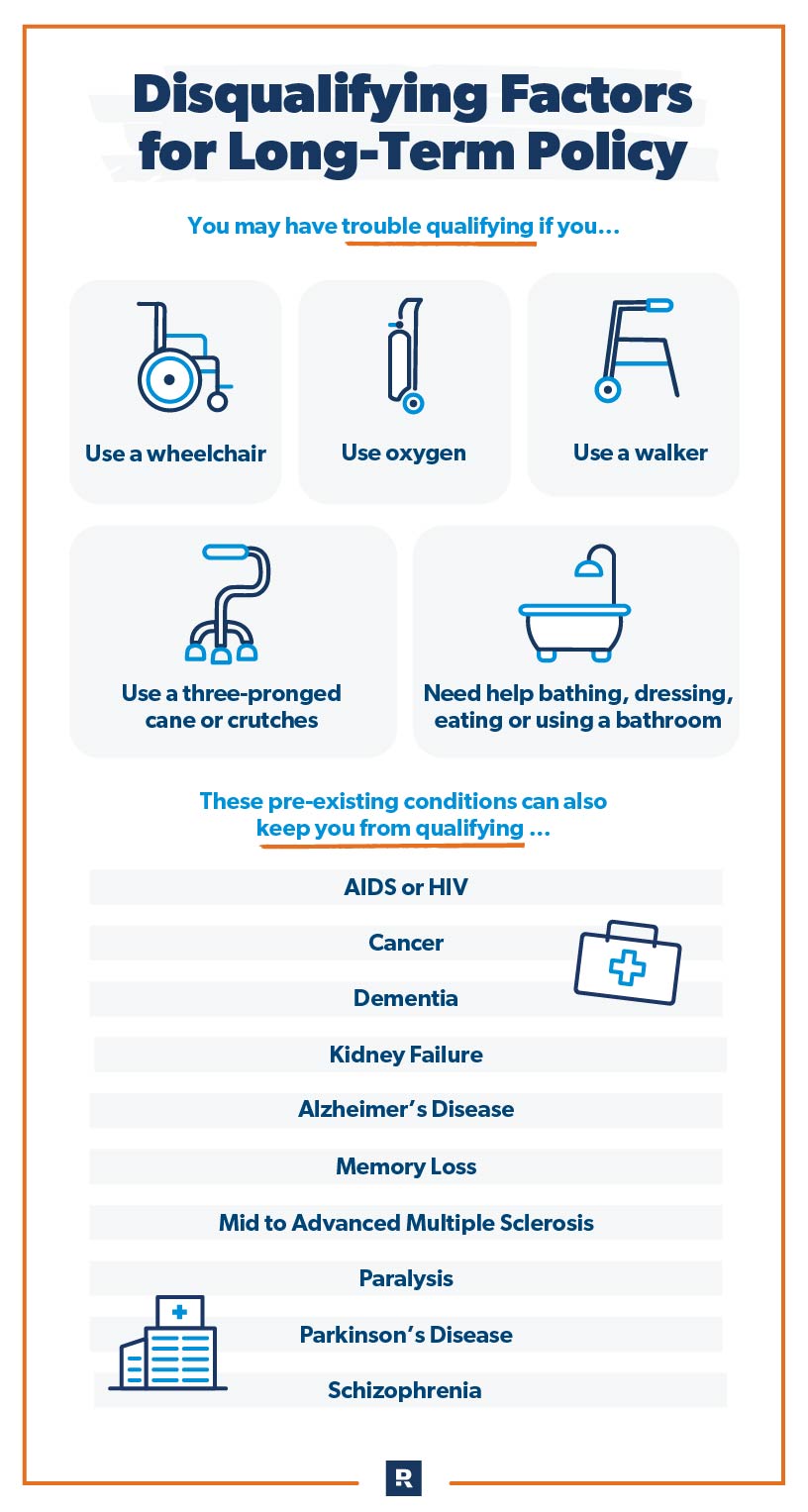
Long-term care can be a touchy subject. It’s not exactly something you want to talk about over mac and cheese at the dinner table. No one wants to think about themselves or their loved ones being unable to live on their own.
But this is likely in your future, so you should take a hard look at how you’re going to pay for it. Is long-term care insurance really necessary? And how do you know if you actually need it? Will Medicare cover these costs as you age, or can you rely on friends and family for care?
You’ve got questions, we’ve got answers! We’ll dig into who needs long-term care insurance so you can put together a solid plan for your future.
What Is Long-Term Care Insurance?
Long-term care insurance covers the cost for a nursing home, assisted living facility or in-home care when you (or a loved one) gets older and starts dealing with health issues. Long-term care is defined as any care that is longer than three months.
Long-term care insurance also covers things like adult day care services, home modifications and care coordination (or management). For many people, it allows them to protect their nest egg while also living in their home longer. It’s also one of the eight types of insurance you need.
Who Needs Long-Term Care Insurance?
If you don’t have any creaks in your joints or you’re still the proud owner of a full head of hair, you might be wondering, Do I need long-term care insurance?
Chances are you'll end up needing long-term care if you’re planning to get old eventually (and we hope you are). The cold, hard numbers say 7 out of 10 Americans over 65 will need long-term care, and an estimated 20% of Americans will need it for longer than five years.1 And unless you’ve built enough wealth to be self-insured, long-term care insurance is the best way to make sure you don’t end up running out of money at the end of your life.
Long-term care insurance is crucial since long-term care is super expensive—and the costs are only going up. The average cost of just one month in a nursing home in the United States is $8,910!2 The government estimates that someone turning 65 years old today will end up paying $120,900 for long-term care.3 But they add that doesn’t represent all the care that person will need. The average person will receive another $204,000 worth of unpaid care from their families. That means they’ll end up needing on average $324,900 in care!4 And while regular health insurance won’t cover these costs, long-term care insurance will.
Now, you might be thinking: What about government programs? Can’t they help? Don’t make the mistake of believing Medicare will cover long-term care costs. It won’t. And while Medicaid—the government program designed for people who truly don’t have any money—will cover some long-term care expenses, it should never be your first choice because you’ll have to spend all your assets before you receive help.
So who needs long-term care insurance? Anyone who’d feel uncomfortable cutting a check for $250,000–300,000. And that’s a lot of people. The average baby boomer only has $202,000 saved for retirement. If the average price tag of long-term care is $324,900, you can see how this can go south—really fast.5,6
Long-term care insurance is the best solution. It offsets the increasing costs of long-term care as you age and gives you peace of mind because it protect your savings you worked so hard to build. If you or your spouse becomes ill, you can afford the care you need without raiding your retirement savings. Plus, your kids won’t be burdened with huge payments for your care.

Milliman Long Term Care Insurance Survey7
Am I Required to Purchase Long-Term Care Insurance?
No one is required to purchase long-term care insurance. If your net worth is around a million dollars (not including the value of your home) you can (and probably should) skip it. Or if those of you who aren’t self-insured love the idea of potentially living out your last days without a penny to your name and at the mercy of the government, passing up long-term care insurance is also a good option.
Long-term care is an important decision. Connect with a trusted pro to make sure you have the right coverage.
If you aren’t either of those people, however, choosing to buy long-term care insurance is a really smart idea.
Is Long-Term Care Insurance Worth Buying?
Yes, long-term care insurance is definitely worth it. In fact, it’s a bargain considering what you get in return. The reality is most Americans simply will not be able to afford the sky-rocketing costs of long-term care. Or they’ll have to dip into their savings or retirement funds to pay for it—not a good plan.
Long-term care insurance also allows you to live in your home longer because it pays for things like in-home care and home modifications (think wheelchair ramp, etc.).
Another benefit is that your family and friends won’t be burdened with every aspect of your care. You can spend more quality time with them without relying on your daughter or friend to come over every day to help.
With long-term care insurance, you’ll enter your golden years with a plan. And your quality of life will be better than if you were constantly trying to cut costs.
Your long-term care insurance premiums may seem expensive now, but they’ll be worth it later when you start getting those long-term care bills in the mail.
How Much Does Long-Term Care Insurance Cost?
Depending on factors like your age, gender, health and family health history, the cost of long-term care insurance can be affordable. For others it can be more expensive. The cost also varies depending on where you live and what kind of policy you pick.
The average 60-year-old man will pay $1,200 per year for a policy that covers $165,000 in care. The average 60-year-old woman will pay $1,960 for the same coverage.8 (Because women tend to outlive men, insurance companies require them to fork over more money to make up for the added risk.) The average 60-year-old couple will pay $2,550 a year for a combined policy.9 The couples discount ranges from 15% to 30% depending on where you live.10
It’s also important to know that long-term care insurers can increase your rates after you sign up. So don’t be surprised if your rates climb. But here’s a silver lining: Long-term care insurance premiums are tax deductible up to certain limits. So you’ll save some money there.
No matter what you end up paying, long-term care insurance still gives you good bang for your buck since there’s a good chance you’ll need long-term care later in life.
When Should I Get Long-Term Care Insurance?
We recommend giving yourself the gift of long-term care insurance on your 60th birthday (we know, not the most exciting gift) because the likelihood you’ll file a claim before then is slim.
About 92% of long-term care claims are filed by people older than age 70, with most new claims starting after age 80.11 That’s why it doesn’t make sense to start a long-term care insurance policy any earlier than age 60. You don’t want to dish out money for an extra decade—for no reason.
But keep in mind that insurance is not one-size-fits-all. You need to do what’s right for you and your family. If you or your spouse has a family history of illness at a young age or are currently dealing with big health issues, you might need to get long-term care insurance earlier. The peace of mind you’ll have is worth more than any cash you’ll save on premiums. But don’t do it because you’re afraid of what might happen. If it’s not likely to happen, wait until you’re 60.
You may have heard you’ll pay less and lock in a low premium if you buy your policy at age 50. But insurers can change your premium after you buy your policy. And we would also never tell you to buy something based solely on how much the monthly payment is. Instead, focus on what you need, when you need it.
Will Your Health Affect Your Ability to Buy a Policy or Claim Benefits Later On?
While it’s a great idea to buy a long-term care policy, the fact of the matter is not everyone qualifies to buy it. Certain health issues make insuring some people too expensive for carriers.
You’ll have trouble qualifying if you already:
- Use a three-pronged cane or crutches
- Use oxygen
- Use a walker
- Use a wheelchair
- Need help bathing, dressing, eating or using the bathroom
What if You Have a Preexisting Condition?
A preexisting condition can also keep you from being able to get a long-term care policy. Here is a list of major health conditions that disqualify people:
- AIDS or HIV
- Alzheimer’s disease
- Cancer
- Dementia
- Kidney failure
- Memory loss
- Mid to advanced multiple sclerosis
- Paralysis
- Parkinson’s disease
- Schizophrenia
The Best Way to Get Long-Term Care Insurance
The best long-term care insurance policy is the one that fits your budget and covers your future needs.
Make sure the policy you choose will pay you enough to keep your retirement savings intact. If you’re on a tight budget, you can try lowering your premium by choosing a longer elimination period (the time you have to wait before you start receiving long-term care and when your insurance starts paying the bills)—but only if you can afford to pay for three months of care out-of-pocket.
The best way to make sure you get the right policy, though, is to talk with an independent insurance agent.
Whether you’ve got questions or just want to know you’re getting the best deal, go to an independent insurance agent. They’ll shop around several different long-term care companies and get you quotes that can save you thousands of dollars and loads of unnecessary worries.
A RamseyTrusted local insurance pro can do just that for you. They’re vetted insurance experts with the answers to all your questions. A pro will help you figure out what you need so you can make the right decision for you and your family.
Long-term care is an important decision, so make sure you get a professional on your side! Contact an independent insurance agent today.


